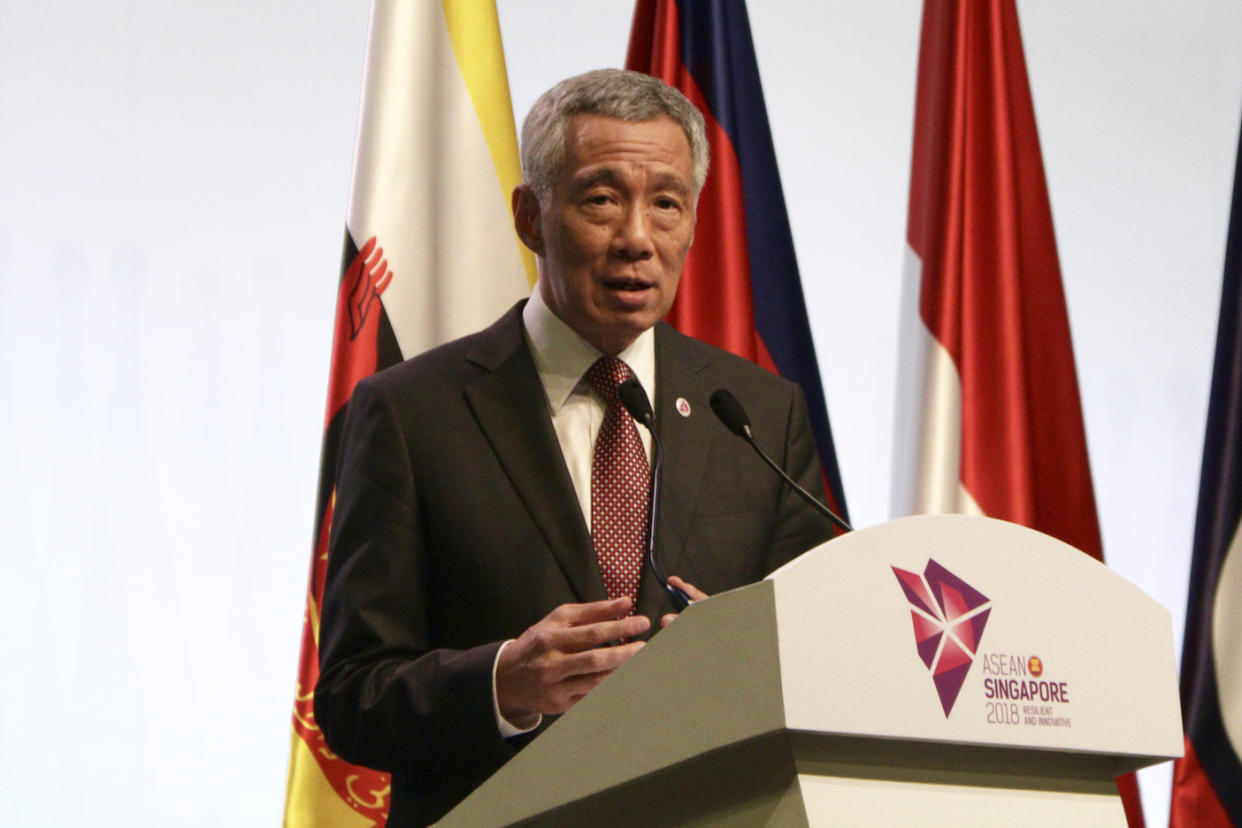Indo-Pacific region has to get used to America First policy: PM Lee Hsien Loong

The America First policy means the US would engage the Indo-Pacific region with an emphasis on a “fair and reciprocal relationship”, said Prime Minister Lee Hsien Loong on Thursday (15 November) at the end of the Association of Southeast Asian Nations (Asean) summit in Singapore.
As such, the region has to get used to the shift in the US policy, Lee said during the summit’s press conference held at Suntec Singapore International Convention and Exhibition Centre.
Lee noted that the superpower has been “generous” in opening its market, making investments and providing regional security.
“But now they say, ‘that’s not good enough – I want every deal to count’. And that will mean a very different relationship and we have to get used to it if the US decides that this is the direction they would go in the long term.”
Responding to a question by a reporter on the absence of US President Donald Trump at the summit, Lee stressed that “these things happen”, citing former US President Barack Obama’s absence at a previous summit.
“I have no doubt that (US Vice-President Mike Pence) conveys his President’s intent and has conveyed accurately what his president…wanted him to register (at the summit),” said Lee. Pence’s presence at the summit underscored the emphasis that Trump gives to the region, he added.
Major powers’ influence in the region
Earlier on Thursday, Pence told leaders of Southeast Asian nations at the summit that there was no place for “empire and aggression” in the Indo-Pacific region, in a veiled reference to China’s growing military strength.
While Pence did not mention the country in his remarks, he noted that small countries, as well as large ones, should be allowed to prosper in the region.
Lee stressed that Southeast Asian countries did not want to take sides when they are pulled in different directions by the major powers. But “circumstances may come when Asean may have to choose one over the other”, Lee said. “I hope it does not happen soon.”
“It is the easiest not to take sides if everyone is on the same side. But if you are friends with two countries which are on different sides, sometimes it is possible to get along with both, sometimes it is more awkward if you try to get along with both,” he added, without mentioning any countries.
‘Enormous’ impact of China’s economy
On China’s economy, Lee said he hoped the country would maintain its open trade policy with the world. Singapore businesses have participated in China’s development “in a big way” and at the national level, Singapore has been involved “in a modest way” in government-to-government projects, such as those in Tianjin and Chongqing.
Given its progress, China has to consider the “enormous” impact its economy has on the world. Consequently, it would need to look at updating arrangements that are “politically tenable and acceptable in many countries”, Lee noted.
In response to a question on China’s ties with Asean, Lee referred to the Asean-China Strategic Partnership Vision 2030, approved at the 21st China-Asean summit on Thursday.
“And if you look at it in context, it is a direction which is compatible with China… continuing to open up and engage with the world, on the basis that it is win-win, which will help other countries to welcome China’s continued growth and emergence as it takes its rightful place in the world,” he added.
During the summit, leaders from Asean – Brunei, Cambodia, Indonesia, Laos, Malaysia, Myanmar, the Philippines, Singapore, Thailand, and Vietnam – met their counterparts from China, the US, Russia, India, Japan, South Korea, Australia, and New Zealand.
Many of them will head to the Asia-Pacific Economic Cooperation (APEC) forum in Papua New Guinea this weekend.
Asean will hold its 34th summit in the Thai capital Bangkok next year.
Related stories:
Rohingya crisis besieges Suu Kyi at Singapore summit
Is Donald Trump’s no-show at Asia summits a sign of waning US influence in region?
Pence says ’empire and aggression’ have no place in Indo-Pacific


